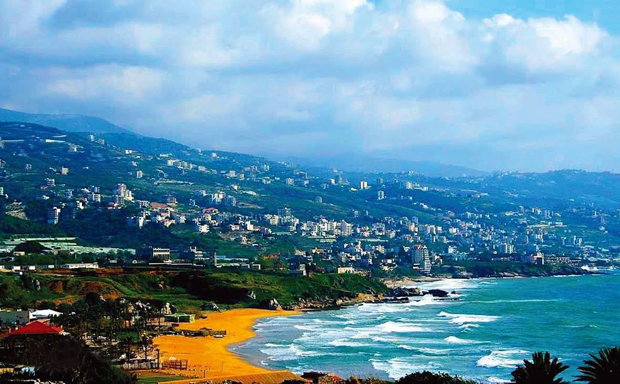Lebanon and the regional great games
- By Sajjad Malik
 0 Comment(s)
0 Comment(s) Print
Print E-mail China.org.cn, December 04, 2017
E-mail China.org.cn, December 04, 2017

Lebanon [File photo]
The recent developments in Lebanon suggest that there are grave dangers lying ahead. It is feared that the Lebanese people could be caught in a conflict driven by the regional "great games" of the countries vying for supremacy at the cost of smaller nations.
The Cold War between Saudi Arabia and Iran is now an open secret. The two have been fighting directly and indirectly through resources and proxies at several places including Yemen, Qatar, Iraq and Syria. The resignation of Prime Minister Saad al-Hariri earlier in November while in Saudi Arabia shows that the rivalry has expanded to Lebanon.
The way he read out his resignation on the TV and remained at some secret place in Riyadh away from the world and his people back home suggested that the resignation could be the work of unseen hands.
But luckily he has emerged from hiding and was allowed to travel to Paris. Later he reached Beirut where he was able to resume his duties because Lebanon President Michel Aoun had not accepted the resignation.
Hariri’s presence in Lebanon will help to unfreeze the domestic political situation. However, the developments shrouding the circumstances of resignation may not become clear any time soon.
The dangerous Saudi-Iran rivalry is driven by religious motivations and geo-strategic considerations. It also has international overtones, as the United States is keenly watching the moves and deftly pushing the deck through different means and methods.
The Sunni-Shiite tussle is part of Islamic history but was previously limited to seminaries and mosques. It became political and later fiercely nationalists after Iran's Islamic revolution in 1979. The ruling House of Saud in the kingdom rivaled it by supporting radical Sunni Islam in the country and elsewhere.
The deadly killing of Shiites and Sunnis witnessed in several Muslim countries is just the tip of the iceberg, i.e. in the mistrust between the two sects of same religious tradition. Countries like Pakistan and Iraq are struggling to maintain sectarian harmony in the face of simmering tension.
The geo-strategic tension between Iran and Saudi Arabia is linked with the efforts to dominate the energy-rich Middle East. Historically, a country remained dominant if it was favorably aligned with the U.S. and its allied nations dependent on the oil.
Iran enjoyed the status until 1979 but lost it after hardline clerics won power. The Saudis are happily shouldering the onerous responsibility of providing free access to oil in the Gulf after Iran lost its previous status.
Another important lynchpin of regional politics is Israel. The security of the Jewish state is of paramount interest to the U.S., which will go to any length to ensure it. Here enters Lebanon which is a rare mix of politics, religion and ethnicity. Bordering Israel makes it both valuable and a prey for political predators.
Iran has successfully created a strategic highway to encircle Israel and Saudi Arabia through proxies in Yemen, Iraq, Syria and Lebanon. The last country is more important due to the presence of the powerful Hezbollah, which has a history of direct conflict with Israel.
Both Iran and Hezbollah are also involved in Syria which makes Israel feel more threatened. The threat from a common enemy is bringing Saudi Arabia and Israel closer. There are several indications of this trend, including the recent first ever interview by a top Israeli army general to a Saudi media outlet.
Hariri in his resignation accused Iran of interfering through Hezbollah in the affairs of his country. Since he is also a national of Saudi Arabia, his resignation cannot be taken as an isolated happening. Rather, it shows the increasing involvement of Riyadh and Tehran in domestic issues of Lebanon.
After Yemen, Lebanon could be the new hot front of the regional Cold War, which would shatter the uneasy peace in the country and further destabilize the entire region. Lebanon’s leaders, especially Hariri, can play a vital role in maintaining the calm. So, his decision to hurry home rather than staying away in the warm company of leaders in Paris is a notable development.
Hariri and his rivals in Hezbollah should realize that in the age of proxy wars and shadowy groups, the countries which can remain at peace, are those which keep a safe distance from powers that seek glory at the expense of weaker nations.
Sajjad Malik is a columnist with China.org.cn. For more information please visit:
http://www.china.org.cn/opinion/SajjadMalik.htm
Opinion articles reflect the views of their authors, not necessarily those of China.org.cn.






Go to Forum >>0 Comment(s)